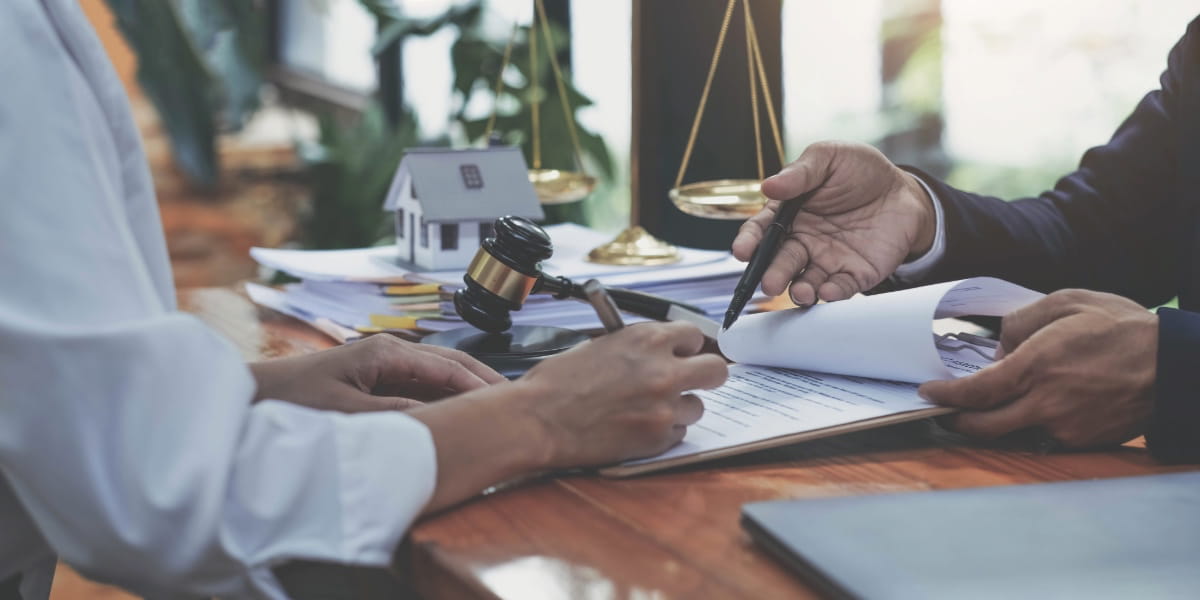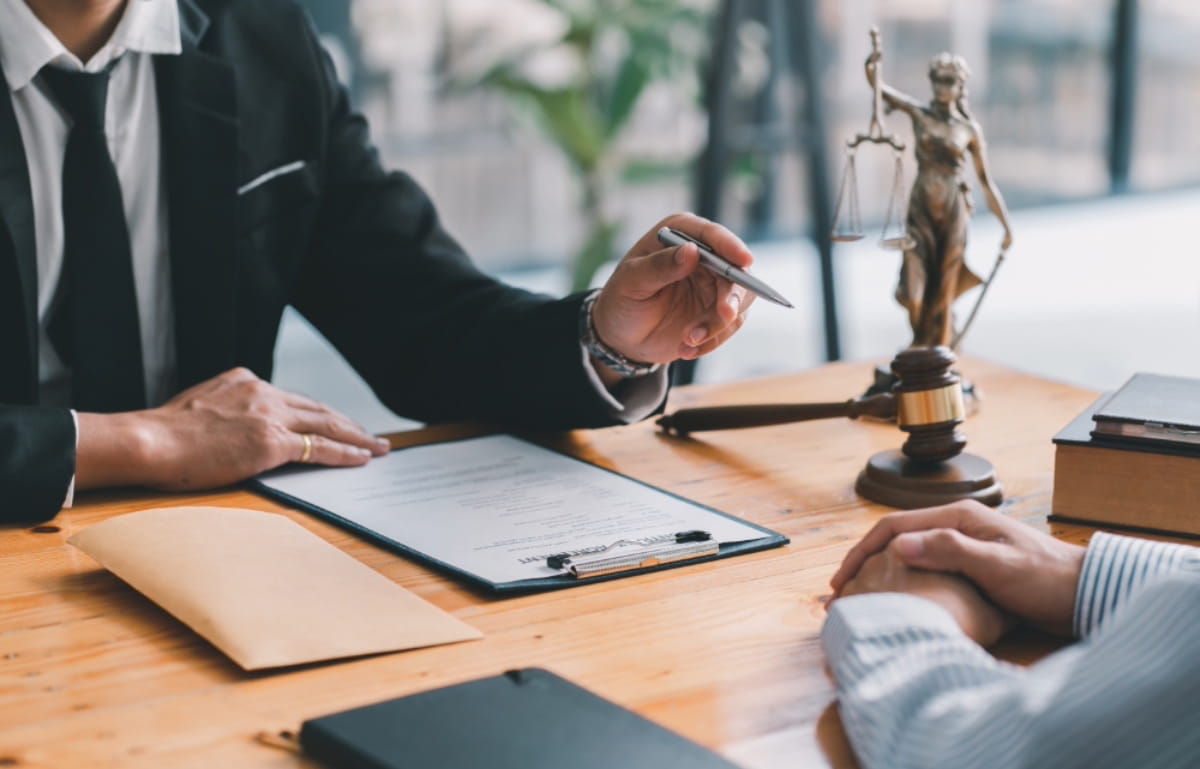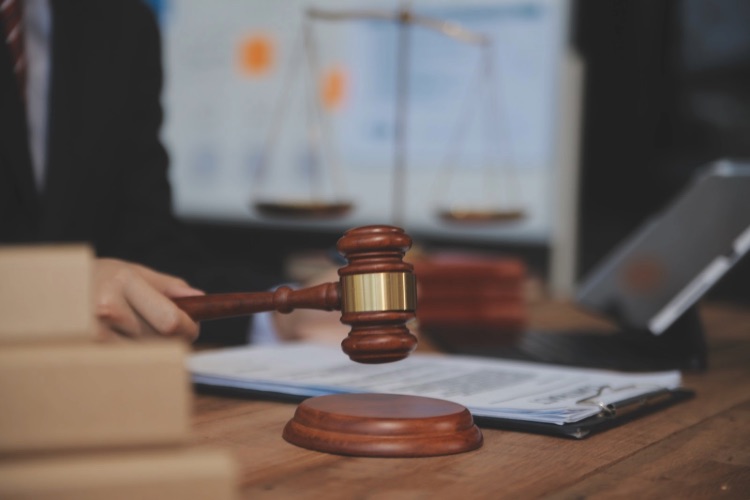Questions to Ask at a Probate Hearing in Texas
If you are preparing for a probate hearing in Texas, you are likely wondering what to expect. Probate hearings are formal court proceedings where a judge oversees the administration of a deceased person’s (the decedent) estate. Knowing what questions you want to ask and what you must answer at a hearing can help you prepare to step into the courtroom. Questions often focus on validating the will, confirming the executor, identifying the assets, and resolving disputes.
At Henington Lewis Law Firm PLLC, we understand that probate can be intimidating, especially when you need to attend one or more hearings. Our founder, Samantha Lewis, brings nearly a decade of legal experience and a personal understanding of how stressful probate can be. We take the time to explain the process clearly, answer your questions with empathy, and tailor each strategy to your unique situation. We are here to guide you every step of the way.
How Does Probate Work in Texas?
Probate is the legal process of administering a decedent’s property and debts—their estate. During probate, the court determines whether a valid will exists, then appoints a personal representative to manage the next steps. The representative, an executor if named in the will or an administrator otherwise, then:
- Identifies and values the decedent’s assets,
- Pays debts and taxes, and
- Distributes the remaining property.
Texas allows dependent and independent administration. Independent administration gives the representative more freedom to manage the estate without much court involvement. In contrast, dependent administration requires ongoing court supervision. Courts may require dependent administration when:
- No valid will exists,
- The heirs or beneficiaries cannot agree to independent administration, or
- The court or others have concerns about the representative’s ability or willingness to complete the process properly.
The court may hold several hearings throughout the probate process, especially in dependent administration.
It’s Easy to Feel Lost in Legal Talk
Probate court can be intimidating. You’re not alone — we’ve helped many Texans face probate hearings with confidence. Talk to us today.
What Happens at a Probate Hearing?
A probate hearing in Texas can take many forms. For simple estates without disputes, an uncontested probate lawyer can guide you through a brief, straightforward hearing focused on proving up the will and confirming the executor. The court also holds hearings to:
- Determine the validity of legal documents, like wills;
- Approve appointments of executors or administrators; and
- Resolve conflicts that emerge during probate, like will contests or objections to the representative’s conduct.
Those hearings may involve the court:
- Calling the case—announcing the case name and parties present on the record;
- Swearing in witnesses—placing individuals under oath before they give testimony;
- Validating the will—reviewing the will, ensuring proper signatures and witnessing;
- Appointing an executor or administrator—officially authorizing someone to manage the estate;
- Reviewing required notices—confirming that the representative sent legal notice to all heirs, beneficiaries, and interested parties;
- Addressing objections—hearing challenges to the will, the executor’s appointment, or the administration process;
- Approving an inventory—accepting a preliminary list of estate assets and debts;
- Ordering a bond—requiring the executor to post a financial guarantee; or
- Scheduling additional hearings—setting future court dates for unresolved matters.
At contested hearings, where parties disagree about something in the process, the representative, loved ones, or witnesses to the will may provide testimony on the witness stand and introduce documentary evidence through their own or the estate’s attorney. The court may also review and ask for clarifications about legal documents.
Who Has to Be at a Probate Hearing?
Generally, the estate’s representative and their probate litigation lawyer should attend probate hearings. Whether and when others must attend depends on why the court is holding the hearing.
Interested parties, meaning those with a potential claim to part or all of the estate, may need to attend probate hearings if the hearing covers an issue that affects them. Interested parties typically include the personal representative, beneficiaries under the will, heirs under the law, and creditors.
What Questions Are Asked at a Probate Hearing?
Many people feel nervous before stepping into a courtroom. At the initial hearing, judges may ask the executor or administrator:
- Did the decedent live in this county?
- Do you have the original will?
- Did the decedent properly sign their will and have it witnessed under Texas law?
- Are you legally qualified to serve as executor?
- Have you notified all required parties?
The judge may also ask witnesses or beneficiaries questions such as:
- Did you personally observe the decedent signing the will?
- Was the signing voluntary?
- Was the decedent of sound mind at the time?
- Do you know of family disputes, fraud, or attempts to pressure the decedent?
These questions allow the judge to verify that the will is valid, the process is fair, and everyone with a legal interest has received notice.
What Questions Might You Want to Ask at a Probate Hearing?
While the judge and attorneys lead much of the hearing, you can ask your own questions. Preparing a list of questions to ask a probate attorney ahead of time helps you gather key information, clarify next steps, and protect your rights during the process. If you are a beneficiary or heir, you might ask, depending on the timing of the hearing:
- Can I receive a copy of the will?
- When will the executor begin distributions?
- Are there any unpaid debts or taxes that need resolving before I receive anything?
If you are serving as the executor, you might ask:
- What documents must I submit before the next court date?
- Does the court require me to file a formal accounting, provide an inventory of estate assets, or secure a bond?
- Can I sell or distribute estate property without court approval, or do I need permission?
By asking thoughtful questions, you can better understand the process you are a part of.
What to Bring to the First Probate Hearing
Gather all required documents before your first probate hearing and prepare with your attorney. When you attend, bring:
- The original will, if you have it;
- The death certificate;
- A valid photo ID;
- Any court notices; and
- Legal correspondence, such as filings or letters from attorneys.
Ensure you bring any other documents or items that the court requests in a court order before the hearing.
Compassionate Guidance for Probate in Texas
At Henington Lewis Law Firm PLLC, we make the legal process more manageable by guiding families with a steady hand. Samantha brings nearly a decade of legal experience and commitment to helping clients through this difficult transition. Contact us today to schedule a consultation.
Related Posts
7 Estate Planning Mistakes to Avoid in Texas
Estate planning mistakes often go unnoticed until it’s too late. Many Texans don’t realize a missing document, outdated beneficiary, or DIY shortcut can create serious problems for loved ones. Clear guidance can help you avoid costly mistakes before they happen. (512) 737-8404 Most Texans do…
What Is a Muniment of Title in Texas?
If probate feels overwhelming, you’re not alone. Many families are unsure whether full probate is required or if a simpler option like a muniment of title may apply. When you’re grieving and facing legal decisions, clear guidance can help you move forward with confidence. (512)…
Independent vs. Dependent Administration in Texas Probate
Probate decisions can shape how long the process takes. Many families don’t realize how much hinges on choosing independent or dependent administration in Texas. When court involvement and responsibilities feel unclear, informed guidance can help. (512) 737-8404 Probate in Texas can move quickly or drag…
Can You Sue an Executor of a Will in Texas?
When an executor’s actions don’t feel right, confusion is common. Many beneficiaries are unsure whether an executor’s delays, decisions, or use of estate assets violate Texas law. If you’re questioning whether an executor has crossed the line, clear guidance can help you understand your options.…
2026 Guide to the Probate Process in Texas
The probate process in Texas refers to the legal steps of settling a deceased person’s estate. It includes everything from determining the validity of a will, identifying assets, paying debts, and distributing property. The process can quickly get complicated depending on whether you must follow…
How Much Does a Will Cost in Texas?
Worrying about the cost of a will is completely normal. Many Texans delay estate planning because they fear it will be complicated or unaffordable. When you want clear answers about pricing and options, straightforward guidance can help. (512) 737-8404 Many Texans worry about the…
Whether you need a personalized estate plan or help handling a civil dispute, we're here to help
Take the first step toward protecting your legacy and giving your family lasting peace of mind. Whether you need a personalized estate plan or help handling a civil dispute, we're here to help.







